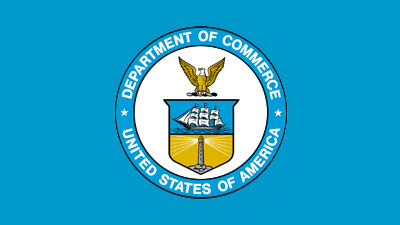
Two Years of Indo-Pacific Strategic Results: Strengthening Indo-Pacific Commerce for a Prosperous Future
Feb 9, 2024
Two Years of Indo-Pacific Strategic Results: Strengthening Indo-Pacific Commerce for a Prosperous Future
[email protected]
Fri, 02/09/2024 – 13:00
FOR IMMEDIATE RELEASE
Friday, February 9, 2024
Office of Public Affairs
Under the Biden-Harris Administration’s Indo-Pacific Strategy, launched on February 11, 2022, the United States Department of Commerce has worked collaboratively with allies and partners to build an Indo-Pacific region that is free and open, connected, prosperous, secure, and resilient.
Home to more than one-half of the world’s people and nearly two-thirds of the world’s economy, the Indo-Pacific region stretches from the U.S. Pacific Coast to the Indian Ocean and encompasses Northeast and Southeast Asia, South Asia, and Oceania, including the Pacific Islands. The United States’ vibrant commerce with the Indo-Pacific region supports more than three million U.S. jobs and is the source of nearly $900 billion in foreign direct investment in our domestic economy. The Indo-Pacific will only grow in importance for U.S. prosperity and security as it drives as up to two-thirds of global economic growth.
Over the past 24 months, the Department of Commerce has worked to build prosperity in the region and in the United States through the core lines of effort identified by the Administration in its Indo-Pacific Action Plan. Key accomplishments include:
Driving New Resources to the Indo-Pacific: Since 2022, the Department has added significant new resources to better drive commercial opportunities and bolster supply chain resilience.
Field Resources – The Department’s International Trade Administration (ITA) opened a Commercial Service office in Bangladesh and added staffing resources to the Pacific Island nations of Fiji and Papua New Guinea to better serve U.S. companies interested in export opportunities to those markets. ITA added new commercial officers and local staff to better support Indo-Pacific work in Australia, Indonesia, India, Japan, the Philippines, Singapore, South Korea, and Vietnam.
Supply Chain Resilience – ITA established a first-of-its-kind Supply Chain Center integrating industry expertise and data analytics to produce innovative supply chain risk assessment tools and drive targeted action for critical supply chain resilience.
Leading the Indo-Pacific Economic Framework for Prosperity (IPEF): The Department leads the negotiation and operationalization of three of the four IPEF negotiating pillars, involving 14 IPEF partners (Australia, Brunei Darussalam, Fiji, India, Indonesia, Japan, Republic of Korea, Malaysia, New Zealand, Philippines, Singapore, Thailand, the United States, and Vietnam) and works to support the commercial success of U.S. businesses and communities across the IPEF markets.
In November 2023, IPEF partners signed a first-of-its-kind IPEF Supply Chain Agreement delivering new tools to prevent supply chain disruptions. They also announced substantial conclusion of negotiations for proposed groundbreaking agreements on the Clean Economy, the Fair Economy, and an overarching IPEF Agreement. The first would help capture commercial opportunities from clean economy transitions, and the second seeks to improve business environment transparency and predictability, combat corruption, and enhance taxation transparency and efficiency. These outcomes underscore the viability of this state-of-the-art model for long-term regional economic engagement that will deliver tangible outcomes for the United States and its partners.
Our Commercial Strategy – Across the IPEF markets, the Department is aligning with likeminded allies and partners, competing to protect U.S. interests and values, investing in our strengths at home, and addressing complex challenges of the 21st Century global economy—such as supply chain security and resilience, climate change, cybersecurity vulnerabilities, artificial intelligence, and economic coercion. We are harnessing more than a dozen senior-level, bilateral commercial dialogues with IPEF partners including Australia, India, Japan, Korea, and Singapore to open markets, align standards, and enhance U.S. company competitiveness.
Driving Indo-Pacific Commercial Wins – Since 2022, across the Indo-Pacific region and IPEF markets, ITA has helped 18,998 U.S. companies and facilitated approximately $248.8 billion in U.S. exports and inward investment to the United States that supports 792,000 U.S. jobs.
Advancing a Clean Economy – In 2023, ITA executed 154 export promotion programs worldwide to support global deployment of U.S. clean technologies and the Administration’s clean energy goals. Clean Tech Strategic Projects Fund programs were held in Malaysia and Vietnam in 2023, with three more events planned in 2024. A Clean EDGE trade mission will visit India in March, and the 2022 Clean EDGE trade mission to Indonesia, Vietnam, and the Philippines catalyzed millions of dollars in deals on SMRs, biofuels, and fuel cell technology.
Reinforcing Deterrence: The Department’s Bureau of Industry and Security (BIS) has been updating export controls on advanced semiconductor technology, thereby restricting the PRC’s ability to obtain and produce items with military applications, including artificial intelligence. BIS has worked to counter export control evasion to Russia; coordinated bilaterally with the export control authorities of more than a dozen governments, including Japan and South Korea; and engaged partners through regional forums, such as the Southeast Asia Forum on Export Controls and the Asian Export Control Seminar.
Strengthening an Empowered and Unified ASEAN: In cooperation with Singapore, ITA and the Department’s National Institute of Standards and Technology (NIST) have promoted enhanced ASEAN digital standards and cybersecurity that facilitate and secure commercial opportunities across Southeast Asia. The U.S. Patent and Trademark Office (USPTO) continues its work with ASEAN on the administration and civil and criminal enforcement of IP rights. The National Oceanic and Atmospheric Administration (NOAA) broadened international training programs for ASEAN countries to implement the Port State Measures Agreement to deter illegal, unreported, and unregulated fishing.
Supporting India’s Continued Rise and Regional Leadership: Through Commerce Secretary Raimondo’s active work on the U.S.-India Commercial Dialogue and U.S.-India CEO Forum—and with visits by Indian Prime Minister Modi to the United States and by President Biden to India in 2023—the Commerce Department is driving shared action on nearly every aspect of the Indo-Pacific strategy. The Secretary visited New Delhi in March 2023 and has signed MOUs with her Indian counterpart in support of the two countries’ ambitions to elevate and expand their technology partnership through a U.S.-India initiative on Critical and Emerging Technology. These MOUs establish a semiconductor supply chain and innovation partnership and connect the two countries’ dynamic startup ecosystems.
Delivering on the Quad: Through the Quadrilateral Security Dialogue between the United States, Australia, India, and Japan, Commerce will continue to strengthen cooperation on critical and emerging technologies and clean energy. These include advancing the five working groups focused on artificial intelligence, semiconductors, clean energy and critical minerals, mobile networks, and quantum information sciences that were established under the Quad Investors Network last year.
Expanding U.S.-Japan-Republic of Korea Cooperation: Our long-time allies and trade partners, Korea and Japan, are cornerstones of the semiconductor, advanced manufacturing, electric vehicle manufacturing, and other hi-tech industries. The three countries seek to hold their first trilateral meeting of Commerce and Industry Ministers in 2024, which will advance the commitments made at the Camp David Trilateral Summit last year and strengthen trilateral collaboration in key sectors of tomorrow’s economy.
Partnering to Build Resilience in the Pacific Islands: The Department has expanded engagement in Pacific Island Countries (PIC), including through last year’s announcement that it will lead a U.S. business delegation to the PICs in the coming year, complemented by virtual trade promotion events. Through the work of NOAA, the Department supports the Local2030 Islands Network, which helps communities understand and prepare for climate variability and change, along with advanced disaster risk reduction initiatives such as the Weather Ready Pacific, and advanced meteorological training to anticipate and respond to extreme weather events. Tsunami Ready Programs have equipped Fiji, Marshall Islands, Micronesia, and Palau with critical tsunami resources and decision support tools.
Supporting Good Governance and Accountability: The USPTO organized the first gathering of IPEF partner judiciaries to strengthen legal handling of intellectual property litigation, and has organized similar work through APEC, the Oceania Customs Organization, the Asian Development Bank, and through a regional IP Attaché in Bangkok. Support and legal technical assistance from the Department’s Commercial Law Development Program are helping governments across the Indo-Pacific with good governance and bidding rules for clean energy projects; infrastructure procurement improvements in Bangladesh, Sri Lanka, the Maldives, the Philippines, and Mongolia; mining governance in Malaysia, Fiji, and Papua New Guinea; and support on data governance, cross-border privacy rules, and technical standards for supply chain security in ASEAN, Sri Lanka, Bangladesh, and the Maldives. The U.S. Census Bureau’s demographic, trade, and geospatial data for the Indo-Pacific Region is informing people and policymakers of essential data, trends, projections, and support to expand capabilities. For instance, the Bureau worked with India’s Ministry of Commerce and Industry to study merchandise trade statistics asymmetries, giving businesses and policymakers a clearer picture of trade trends.
Supporting Open, Resilient, Secure, and Trustworthy Technologies: Work on critical and emerging technologies (CET) is vital for our nation’s security and economic prosperity. It ensures that the worldwide digital transformation benefits our economies, societies, and workers. The Department is expanding partnerships on clean technology, defense, energy, and critical infrastructure through CET initiatives with the governments of India, Singapore, Japan, Korea, and Australia, and with companies. We are harnessing international standards to drive artificial intelligence and digital policies that balance safety and security with innovation, competition, and better market access. Our National Telecommunications and Information Administration (NTIA) helped drive Quad agreement on frameworks for 5G and Open RAN supplier diversity, advanced interoperability, security, and deepened industry engagement. The Department’s 2023 cybersecurity trade mission to Korea, Japan, and Taiwan ITA has generated significant new cybersecurity commercial agreements for participating U.S. companies.
Tags
Indo-Pacific Economic Framework
Read the full report from the U.S. Department of Commerce: Read More




